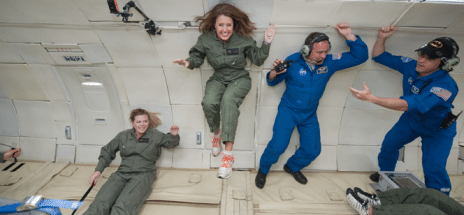WHY DOES ZERO GRAVITY ROB ASTRONAUTS OF SLEEP?

There is one problem that space scientists are puzzling over. Well, there are many problems they’re puzzling over, but one that is proving especially tricky to tame. They can’t figure out why astronauts cannot sleep during their missions in zero gravity.
Sleep deprivation and fatigue are common subjective complaints among astronauts. Even after strapping themselves to their bunks in order not to float away into the air, crew members struggle to get anywhere more than five hours of sleep every night. At the International Space Station, in simulated zero-gravity sessions, studies have proved that astronauts have fitful sleeps and strange dreams.
This is in spite of using multiple sleep-inducing drugs. In a recent study that examined the prevalence of sleep deficiency and use of hypnotic drugs in astronauts, researchers collected data from 64 astronauts on 80 space flight missions and from 21 astronauts on 13 ISS missions. 75% of the crew members reported using sleep-promoting drugs, but in spite of that, reported sleeping well only for a small fraction of the night. This perhaps makes intuitive sense because the ISS, in order to create an illusion of zero gravity, hurtles across space at great speeds, so that the Sun rises and sets once every 90 minutes.
It’s not surprising that such irregular movement plays havoc with the internal biological clock of human beings that dictates sleep patterns and rhythms.
Since chronic sleep leads to performance issues, it is important that science finds a way to put astronauts to sleep in space.





